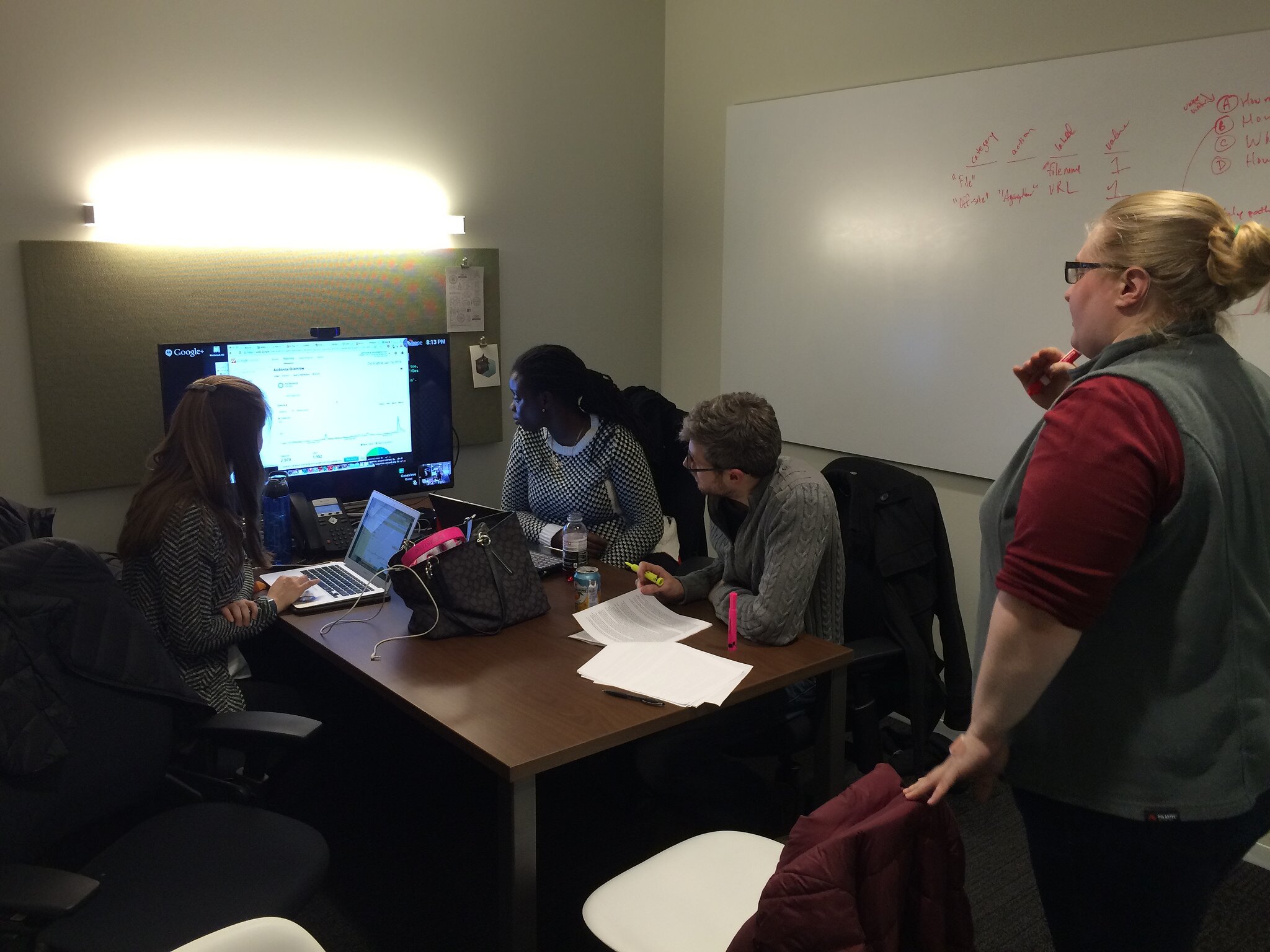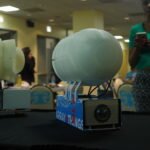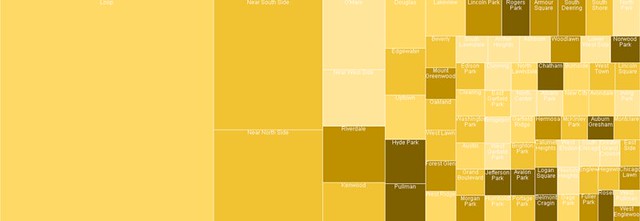
Energy usage by neighborhood area, picture courtesy of Tom Schenk Jr
Karen Weigert and the CleanWeb Challenge
This week’s OpenGov Hack Night featured a presentation by the City of Chicago Chief Sustainability Officer Karen Weigert and the winners of Chicago’s Earth Day Hackathon showed off their apps.
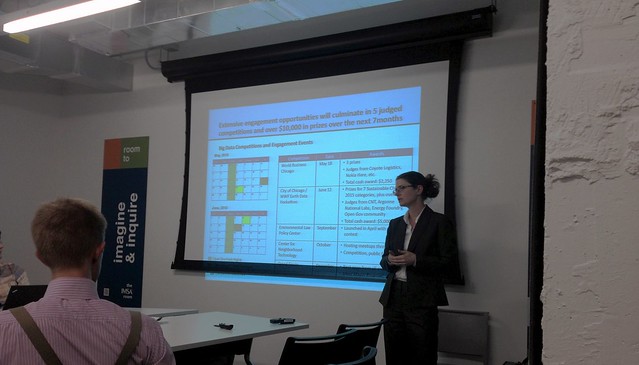
In September, the City of Chicago released the Sustainable Chicago 2015 Plan focusing on seven areas:
- Economic Development and Job Creation
- Energy Efficiency and Clean Energy
- Transportation Options
- Water and Wastewater
- Parks, Open Space, and Healthy Food
- Waste and Recycling
- Climate Change
All together, the city has twenty-four goals and a hundred actions points. “All of which could be enhanced from data, visualizations, apps and stats analysis,” states Karen Weigret.
As part of this effort, the City has been releasing data on sustainability issues – including an API and data set for energy usage by neighborhood. Chicago’s been on the forefront of environmental issues and was recently awarded $30,000 from the World Wildlife Fund to help support sustainability programs in Chicago.
The city also hosted an Earth Day hackathon bringing together 300 civic innovators to think of ways to use technology to create a more sustainable city.
And that is just the beginning: The city recently partnered with the World Wildlife Fund to launch the Chicago Cleanweb Challenge. The Chicago Cleanweb Challenge is a year-long competition designed to promote sustainability in Chicago through community engagement and entrepreneurship. The city has partnered up with several environmental non-profits to host events throughout the year and will be releasing more data sets as the competition progresses. The overall winner of this challenge will get a chance to meet the mayor.
You can follow the progress of both the CleanWeb challenge and Chicago’s progress on sustainability issues by following @SustainChicago on Twitter.
Earth Day Hackathon Winner: Bike Rack Finder
The winner of the Earth Day Hackathon was the Chicago Bike Rack Finder by Patrick French and Jon Freeman.
Chicago has a lot of bike racks. This tool is used to help bikers find bike racks near them or near their final destination if they’re planning a trip. The app is completely mobile and open source. Currently, the app is still in the prototype phase. The team would like to add more features, such as users being able to add new bike racks to the data.
Currently, the city only has data on its own bike racks – but no data on the privately installed bike racks. While the city has put bike rack data on GitHub and is accepting pull requests, the team behind bike rack finder hope that by making it easier to report new bike racks that data gets filled in faster.
Another problem the team would like to address is to report the presence of “sucker poles” – poles that make it easy for thieves to steal any bike locked to it. By warning users that these sucker poles are not a safe place to lock your bike too, the app can help prevent bike thefts.
Earth Day Hackathon Winner: Urbs in Horto
In a very close second is the Urbs in Horto app by Todd Jones. that helps people find new places for urban gardens in Chicago. (If Urbs in Horto sounds familiar, it’s because the name of the app is also the City of Chicago motto: City in a Garden).
The app lets the user see all the vacant lots in Chicago as possible candidates for urban gardening spaces.
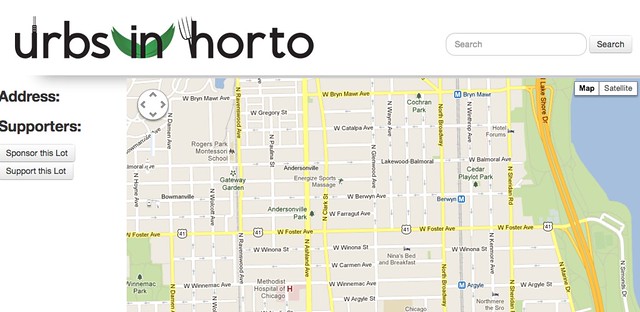
Because the hackathon was only 12 hours, both the apps are still just prototypes. However, this is just a taste of what’s to come as the Cleanweb competition continues.
Next Big Thing: Safer Communities Hackathon
Tomorrow, the City of Chicago and Google will be sponsoring a Safer Communities Hackathon at Google’s Chicago headquarters. You can RSVP for the event here.



